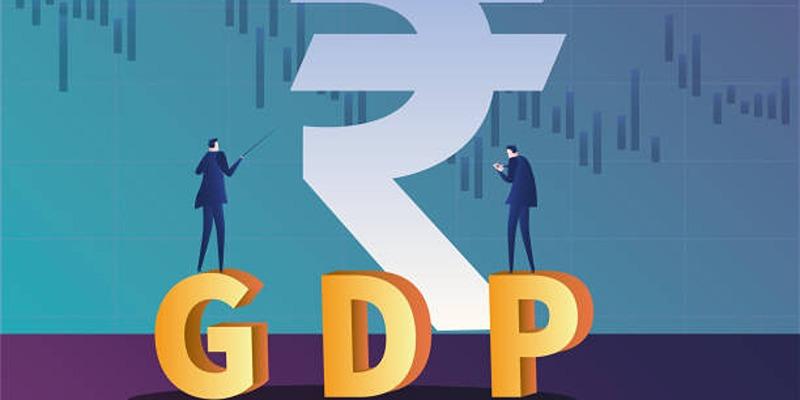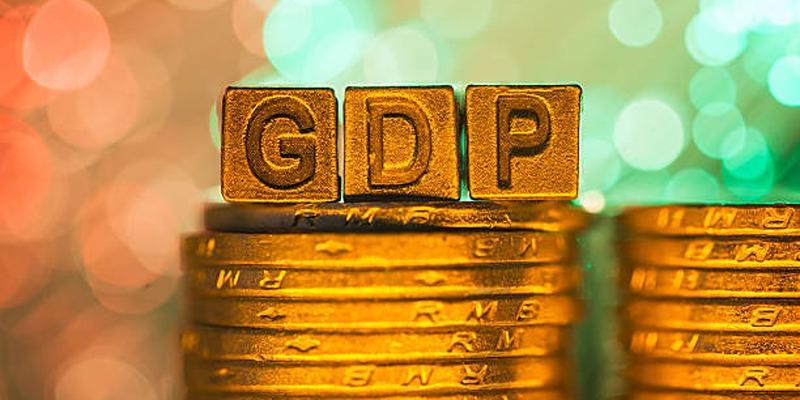The Gross Domestic Product (GDP) serves as a cornerstone in economic analysis, providing valuable insights into a country's economic performance and overall well-being. While it may seem intricate, its importance spans various societal aspects, impacting everything from job opportunities to governmental policies. A closer examination of GDP and its tangible effects reveals the complex connections between economic indicators and our daily lives, underscoring the importance of understanding and tracking GDP trends.
1. Economic Growth and Stability:
A rising GDP is often associated with economic progress and prosperity, indicating a growing economy, while a declining GDP signals challenges and potential economic downturn. For individuals and businesses, a growing GDP translates to more job opportunities, higher incomes, and increased economic security, fostering a positive environment for financial growth and stability.
2. Employment Dynamics:
Perhaps one of the most tangible impacts of Gross Domestic Product (GDP) is on employment dynamics. As GDP expands, businesses tend to hire more workers to meet the rising demand for goods and services. This increase in employment leads to a positive cycle of economic growth, where more people have jobs and, in turn, contribute to increased consumer spending. Conversely, during economic downturns, businesses may face financial constraints and reduce their workforce, resulting in layoffs and job losses.
Individuals who closely monitor GDP trends can better anticipate shifts in the labor market, enabling them to make informed decisions about further education, specialized training, and suitable career paths aligned with the evolving economic landscape.
3. Income Distribution and Inequality:
While GDP growth is commonly linked to enhanced prosperity and economic well-being, it is crucial to delve deeper into its ramifications on income distribution and societal equality. Despite the overall economic expansion, certain groups within society may not reap equivalent benefits, resulting in disparities in wealth accumulation and access to opportunities. By examining the nuanced impact of GDP growth on income distribution, policymakers can devise tailored strategies to address inequality issues effectively, fostering a more equitable and inclusive environment for sustainable economic growth and development.
4. Quality of Life:

GDP per capita, calculated by dividing a country's GDP by its population, offers valuable insights into the average standard of living within that nation. While this metric is not flawless in assessing quality of life, it does give a general idea of a country's economic health. A higher GDP per capita often indicates improved access to critical services like education, healthcare, housing, and other necessities, which in turn contribute significantly to the overall well-being and welfare of society.
Access to Education:
Education profoundly influences both individuals and societies by shaping perspectives, nurturing talent, and fostering innovation. With increased GDP levels, there is often a parallel increase in resources allocated to educational investments. This surge drives significant enhancements in educational quality, curriculum enrichment, and student accessibility.
As a ripple effect, the development of human capital is bolstered, leading to a more skilled workforce, heightened employability prospects, and expanded earning potential for individuals. This virtuous cycle of investment in education not only benefits the individual but also contributes to the overall socio-economic advancement of communities and nations.
Healthcare Services:
A country's Gross Domestic Product (GDP) plays a crucial role in shaping its healthcare system. With economic growth, individuals often experience an increase in disposable income, allowing for greater investments in healthcare services. This leads to enhanced accessibility to medical care and ultimately contributes to improved health outcomes for the population. A well-established healthcare system equipped with ample resources and skilled personnel is vital not only for sustaining a healthy populace but also for fostering economic productivity and overall societal well-being.
Housing and Living Conditions:
When the economy grows, individuals and businesses tend to have more financial resources at their disposal. This increased wealth can then be channeled into investments in higher-quality housing options, ultimately raising the overall standards of living for residents.
By upgrading their living spaces, people can enjoy a better quality of life, contributing to a healthier and more productive society. Additionally, improved housing conditions can help reduce the risk of health hazards associated with inadequate living environments, fostering a safer and more sustainable community for all.
5. Business Confidence and Investment:
GDP growth plays a pivotal role in shaping business confidence and impacting investment decisions, ultimately influencing the trajectory of economic development. A robust and flourishing economy not only instills optimism among businesses but also fuels the drive for investment in novel ventures, extensive research endeavors, and cutting-edge innovation.
In contrast, when faced with economic ambiguity, businesses may refrain from investing, potentially resulting in economic stagnation or contraction. By vigilantly monitoring GDP trends and fluctuations, businesses gain valuable insights into market conditions, enabling them to make informed and strategic decisions to leverage opportunities or mitigate risks proactively.
6. Government Policy and Public Services:
Governments heavily depend on Gross Domestic Product (GDP) data to craft well-informed policies and distribute resources efficiently. The growth of GDP plays a crucial role in determining tax revenues, government expenditure, and budgetary preferences, thus shaping choices regarding infrastructure development, social welfare initiatives, and public services provisioning.
Through a comprehensive grasp of GDP patterns and fluctuations, policymakers can fine-tune strategies to foster sustainable economic expansion, cater to societal requirements, and alleviate the repercussions of economic downturns on vulnerable demographics. This data-driven approach enables policymakers to navigate complex economic landscapes with precision and foresight, ensuring a more resilient and inclusive society in the face of challenges.
7. International Relations and Trade:

Gross Domestic Product (GDP) also plays a crucial role in shaping international relations and trade dynamics. The economic strength of a nation, as reflected in its GDP, can heavily influence its standing in the global arena. Countries with robust economies not only hold more sway in international affairs but also possess greater leverage in trade talks. By delving into the GDP figures of their trading counterparts, governments can pinpoint areas ripe for cooperation, craft mutually beneficial trade deals, and adeptly navigate the intricate web of geopolitical intricacies that define modern diplomacy.
Conclusion:
GDP is a crucial measure for understanding economic performance, providing valuable insights into a nation's economic health. By grasping the real-world implications of GDP, individuals, businesses, and policymakers can make informed decisions to drive sustainable growth, foster prosperity, and enhance societal well-being. Ultimately, valuing GDP equates to valuing the economic future and prosperity of our communities and the global landscape.







